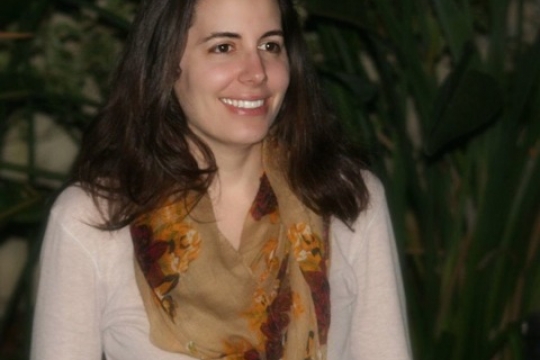How will people behave as they’re faced with the challenges of climate change? Will they work together to cut carbon emissions, in the interest of the greater good, or will they act in their own self-interest? And how much of a gamble will people take as they grapple with how to cope with living in a world where extreme weather events become the new ‘normal’?
These are some of the questions that behavioural economist Dr Kerri Brick tackles in her dissertation, which recently scooped South Africa’s top award for economics doctoral degrees submitted in 2014.
Brick, a fellow of the Environmental Policy Research Unit (EPRU) at the University of Cape Town’s School of Economics, submitted a four-paper thesis in February last year. The Economic Society of South Africa (ESSA) recently announced that they regarded it as the best doctoral contribution.
The award recognises research in the field of economies from a South African university that is ‘of outstanding quality’. Dissertations in all fields of economics are eligible for the award.
The golden thread running through these four papers is that they use lab and field experiments to test how people might respond to some of the challenges posed by climate change, such as extreme weather events. She says her supervisor, fellow behavioural economist at EPRU Prof Martine Visser, was a strong guiding hand in all aspects of this research.
Brick is now working on postdoctoral work at EPRU, and is collaborating with Visser on a project which examines how messages targeting consumer behaviour can be used to nudge people to act in a more pro-environmental way.
What drives human behaviour?
Brick says her interest in behavioural economics is rooted in its potential to be an additional policy tool for addressing environmental and climate change issues.
‘For instance, when local municipalities need to reduce electricity or water use amongst their constituents, the demand side tools available to them are typically tariff increases, taxes or a structural approach – like water restrictions or load shedding,’ she explains.
Regulatory approaches – like implementing a carbon tax – are feasible over a longer time horizon. On the other hand, tariff increases or water restrictions can be implemented in the shorter term but can feel biased against lower income households.
‘For instance, if you try to reduce water and electricity use by putting in water restrictions or load shedding or tariff increases, higher income households are better able to absorb these measures than low income households by installing solar geysers, rain water tanks and water and energy efficient appliances,’ Brick says.
‘But poorer communities can’t insulate themselves against these sorts of demand management measures as easily.’
On the other hand, the behavioural economic literature has shown that messaging people about their electricity and water consumption can be an effective way of encouraging more efficient usage. Brick and Visser consider such messaging to be an additional demand management tool. Messages of this kind can be rolled out in the short term and, as they don’t feel punitive, can be useful across all income groups. Brick and Visser’s current focus is working with local municipalities to design messaging that encourages pro-environmental behavioural change.
Read more about Dr Kerri Brick’s dissertation here.
